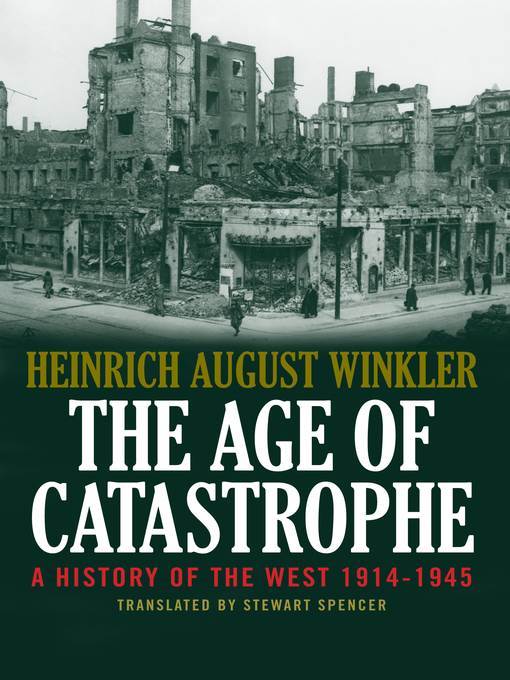
The Age of Catastrophe
A History of the West 1914†"1945
کتاب های مرتبط
- اطلاعات
- نقد و بررسی
- دیدگاه کاربران
نقد و بررسی

October 1, 2015
An appropriately vast history of the years between World War I and World War II, after which the "bipolar world" of today came into being. German historian Winkler (Germany: The Long Road West: Volume 2: 1933-1990, 2007, etc.), an emeritus professor at the renowned Humboldt University, takes the conventional view that the wartime reparations demanded of Germany by the victorious Allies after WWI were the first step on the road to ruin that was Nazism. He is unconventional in allowing that Germany deserved some punishment, especially given the war crimes German soldiers committed that were never adequately adjudicated. Readers are more than 200 pages into the account before encountering Winkler's reckoning that only six war-crimes trials were ever held, with the result that "Germany's war crimes went unpunished." By this time, we have already learned that Germany was the perpetrator of "the first systematic genocide of the twentieth century" which put German diplomats in a rather uncomfortable position when confronting the Armenian genocide at the hands of the Ottoman Turks, which the author unhesitatingly numbers at 1.5 million. Though his narrative is full of central events, Winkler's book is particularly valuable in recounting lesser-known details, colonial sideshows, and events at the fringes of Europe: the terrible conflict between Greeks and Turks in the early 1920s, which almost drew Britain into another shooting war, and the rise of Arab nationalism in the anti-colonial struggles in North Africa against France and Spain. Winkler also finds invigorating connections: Woodrow Wilson may have been maneuvered out of a role in settling the European peace, but Franklin Roosevelt enjoyed a modicum of revenge when he delinked the dollar from the world economy in 1933, signaling that "the United States had no intention of allowing other nations to shackle its movements in terms of currency." Though some of the author's arguments are curious, as when he links German post-World War II guilt to Protestant ideas of "inherent sinfulness," none are entirely fruitless. A valuable contribution to world history as viewed from a non-Anglo-American perspective.
COPYRIGHT(2015) Kirkus Reviews, ALL RIGHTS RESERVED.

























دیدگاه کاربران